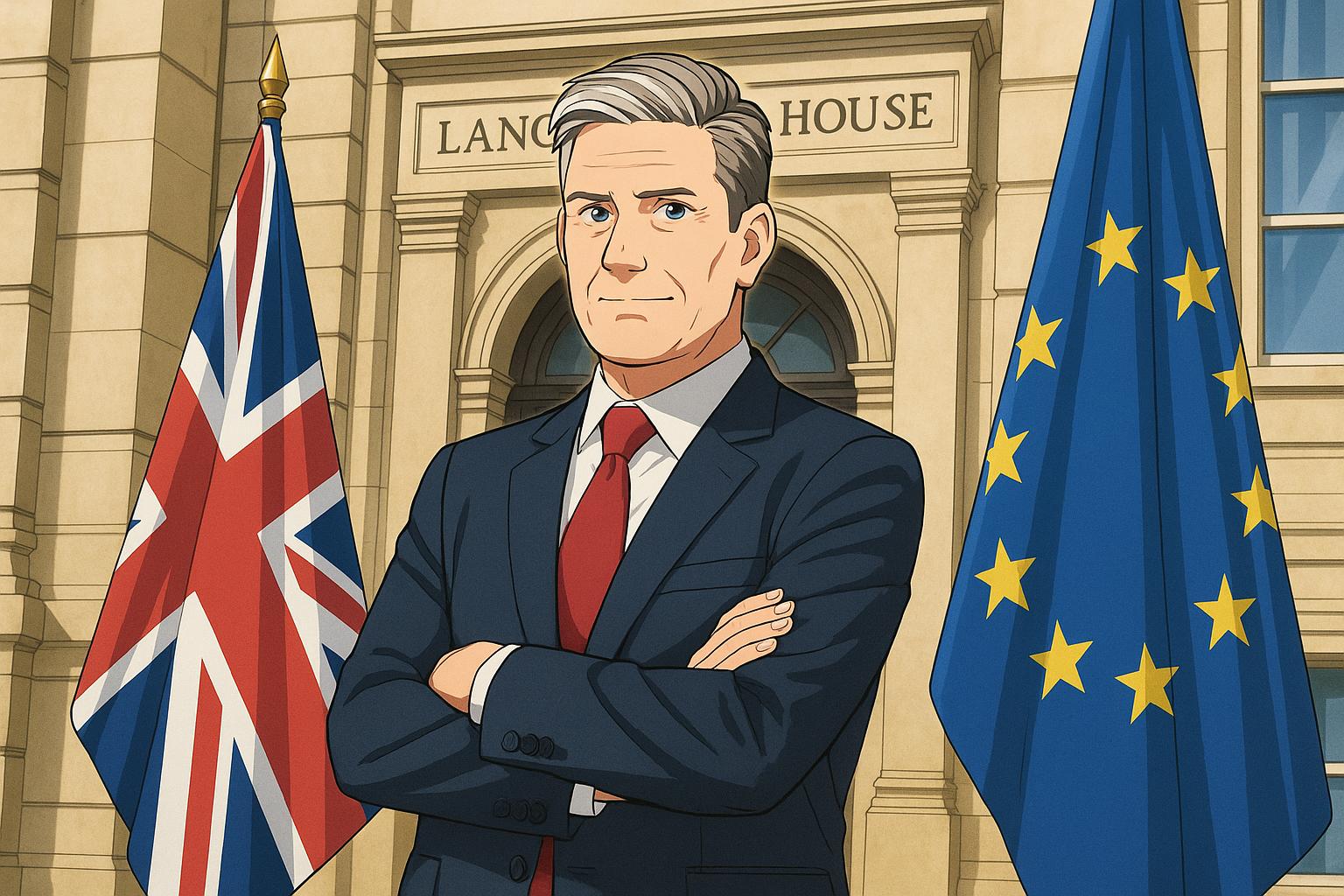The recent EU reset announced by Keir Starmer has ignited a fresh wave of controversy and division within the UK, reminiscent of the intense debates during the Brexit referendum. As negotiations concluded at Lancaster House, Starmer faced the media alongside European leaders, aiming to herald a "new chapter" in UK-EU relations. Yet, this effort has been met with fierce backlash from notable Brexit proponents who perceive the agreements as a significant capitulation to Brussels.
In the weeks leading up to the announcement, the atmosphere was thick with anxiety and expectation. Critics like Daniel Hannan and David Frost voiced strong opposition, branding the deal a betrayal. In an outburst on social media, Hannan suggested that the UK was now a submissive entity to the EU, while Frost, ever the Brexit evangelist, seemed to rewrite history regarding the negotiations he once championed. Their rhetoric highlights a central paradox: many who advocated for Brexit now find themselves decrying the outcomes of a process they once insisted would bring about unprecedented national sovereignty.
The core of Starmer's achievement lies in a landmark Sanitary and Phytosanitary (SPS) agreement aimed at reducing trade barriers on agricultural products. This deal is not merely a bureaucratic adjustment; it's projected to boost the UK's economic output by £9 billion by 2040. It encompasses not only food standards but also critical agreements on youth mobility and security, which underscored the importance of maintaining a dialogue with European allies. The adaptation even includes a vexed issue like fishing rights—an area fraught with historical tensions, yet essential for any meaningful trade pact.
Yet even as the announcement unfolded, media scrutiny remained laser-focused on the concessions made. Starmer was quick to assert that this reset does not equate to a return to the single market or the customs union, a necessary clarification given the prevailing "Brexit derangement syndrome" gripping sections of the press. Reflecting on the intense public sentiment, Starmer asserted that he aims to facilitate jobs and economic growth, rather than rehash the divisive narratives of the past.
The broader implications of this reset cannot be understated. As discussions turned toward enhanced political and economic ties, it was evident that Starmer’s administration is seeking to acknowledge Brexit's consequences while forging collaborative pathways for mutual benefit. This pragmatic stance marks a departure from the combative rhetoric that characterised the post-Brexit landscape. With the realities of trade, security, and climate change pressing on the global stage, the need for cooperative frameworks has never been more pronounced.
Yet the reaction from various political factions demonstrated the ongoing struggle within the Conservative Party. While some members openly lambasted Starmer's approach, questioning its viability for the upcoming elections, others appeared to struggle with their party’s internal direction in the aftermath of Brexit. The spectacle of Kemi Badenoch’s press conference, characterised by ominous proclamations and technical difficulties, symbolised a party grappling with its identity amidst profound policy shifts.
The tension stirred by this development serves to underscore the fragmented nature of contemporary British politics. While many Brexit supporters may wish to ignore the ramifications of their decisions, the ongoing negotiations reflect a reality that cannot be easily brushed aside. Starmer's commitment to enhancing UK relations with Europe could mark a pivotal moment: one that either propels a more unified approach to international relations or entrenches divisions that remain acutely sensitive.
In tackling these complex issues, Starmer is not merely navigating a political tightrope but attempting to reshape the narrative in ways that resonate with those yearning for stability in an increasingly uncertain world. As this agreement signals a potential thawing in UK-EU relations, it raises the question of whether a reconciliatory approach can bridge the chasm that Brexit has carved through British society.
Reference Map
- Paragraph 1: 1, 2
- Paragraph 2: 1, 3
- Paragraph 3: 1, 4
- Paragraph 4: 1, 5
- Paragraph 5: 1, 7
- Paragraph 6: 1, 6
- Paragraph 7: 1, 2
- Paragraph 8: 1, 2
Source: Noah Wire Services
